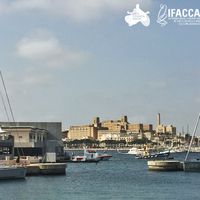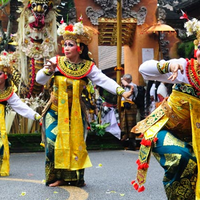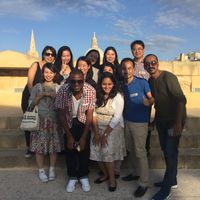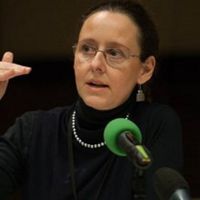World Culture Forum 2016 I Key outcomes
 The recently concluded second edition of the World Culture Forum (WCF) – organised this October in Bali by the Ministry of Education and Culture, Indonesia with UNESCO’s support - attempted to reaffirm the important role of culture in ensuring inclusive and sustainable development. Over 700 participants (with a reassuring majority from Asia) gathered for 3 days of discussions on rural sustainability, environmental ethics, digitisation and cultural diversity, among other topics.
The recently concluded second edition of the World Culture Forum (WCF) – organised this October in Bali by the Ministry of Education and Culture, Indonesia with UNESCO’s support - attempted to reaffirm the important role of culture in ensuring inclusive and sustainable development. Over 700 participants (with a reassuring majority from Asia) gathered for 3 days of discussions on rural sustainability, environmental ethics, digitisation and cultural diversity, among other topics.Speakers included Ridwan KAMIL, architect and currently, Mayor of Bandung, Indonesia; Celio TURINO, architect of Brazil’s well-known Cultura Viva policy that resulted in 2,000 Culture Points scattered over 1000 municipalities benefiting more than 8 million people; award-winning Indonesian environmental activist, Aleta BAUN, leader of the indigenous Mollo people; and, Acehnese journalist Shadia Marhaban, the only female member of the successful peace talks between the Free Aceh Movement and the Government of Indonesia in 2005.
***
#1: Culture as a fundamental basis for sustainable development
[caption id="attachment_61252" align="alignleft" width="300"]
Despite the growing acknowledgment, in recent years, of the importance of culture in development, the release of the 17 Sustainable Development Goals/SDGs and 169 Targets by the United Nations in September 2015 revealed the need to renew calls for the mainstreaming of culture in all lines of development.
WCF 2016 attempted to reaffirm this through the 10-point Bali Declaration, which will form the basis of a Framework for Action to be presented alongside the 39th Session of UNESCO General Assembly in October 2017. Throughout the Forum, panelists and participants unequivocally and repeatedly acknowledged that culture should not be treated as a mere commodity, but respected as a system of ideas, values, motivations and skills that bear tremendous value in ensuring that development is managed sustainably and inclusively. The conversations in Bali also particularly highlighted the backdrop of contemporary crises such as climate change, the rise of religio-political radicalism, and intergenerational detachment – all of which suggest a need to reframe existing development models and recover damaged relationships.
Echoes of these conversations were also heard at the 7th World Summit on Arts & Culture (19-21 October 2016, Valleta, Malta), organised by the International Federation of Arts Councils and Culture Agencies/IFACCA and Arts Council Malta. Writing in the Summit’s Discussion Paper, current Chairman of the National Commission for Culture and the Arts, Philippines, Felipe M. De Leon, Jr. called for the revitalisation of communal creativity for a sustainable future:
Today, the economistic imperative that prevails in many nations effectively undermines cultural creativity for it conditions, and even limits, cultural production to that which is marketable and quantifiable. […] Under such a mindset, many values, especially sacred values, that cannot be reckoned in monetary terms are ignored or undermined. […] In general, there is a devaluing of intangible and spiritual qualities such as character, sense of honour and dignity, integrity, sincerity, moral excellence, inner virtues, spiritual love, wisdom and creative imagination in favour of wealth, consumerism, possessions, power, and industrial work ethic, conformity, efficiency, mass production, and mass entertainment.
***
#2: Rediscover and reaffirm local wisdom
[caption id="attachment_61263" align="alignleft" width="300"]
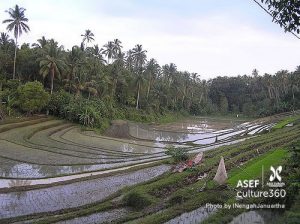 Local wisdom and developmental solutions were highlighted: the example of Bali’s subak cooperative water management system of canals and weirs was shared as an example[/caption]
Local wisdom and developmental solutions were highlighted: the example of Bali’s subak cooperative water management system of canals and weirs was shared as an example[/caption]The dynamics between local wisdom and global values were strongly articulated during WCF.
On the specific issue of water supply and management, for example, the traditional systems of Subak (Bali, Indonesia) and Qanats (Iran) – both irrigation management systems – were shared. While developed under different climatic contexts, they share interesting similarities in that they were both developed with due consideration to the socio-cultural environment and to the participation and ethical values of their respective user communities. Both systems have stood the test of time and continue to be used today.
More generally, this points to a need to re-look at our traditional cultures for good practices specifically developed to balance the interaction between man and nature, maintain the crucial societal and ecological conditions necessary for human safety and security, and subsequently seek developmental solutions that preserve and strengthen the resilience of the self-regenerating capacity of the natural environment.
***
#3: Digital technology as a viable medium of choice for bridging gaps
[caption id="attachment_61253" align="alignleft" width="300"]
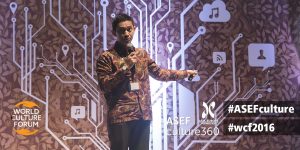 Digital technology can bridge gaps, including by personalised education services: Belva Devara, founder & CEO of Ruangguru.com [/caption]
Digital technology can bridge gaps, including by personalised education services: Belva Devara, founder & CEO of Ruangguru.com [/caption]While not a panacea for developmental challenges, digital technology can play specific and targeted roles in the solution chain. Google Cultural Institute, Europeana, and Ruangguru.com were presented as models of projects that could possibly demonstrate how digital technology can enable cultural material to be open and shared en masse, help overcome physical barriers, and create exciting new culture and impact.
At the same time, this small contribution to inspiring peoples and communities cannot yet fully replace the cultural experience. Rather, the purpose of digitisation is to fill a specific gap by offering an easier, more convenient alternative for those who otherwise would not be as likely to physically access culture.
Strategies for more effectively harnessing digital technology for culture and development include keeping the digital material usable and reliable, making it open source, free-to-use and collaborative, understanding what an authentic and immersive experience would be like and using technology to emulate it, and gamification to make the material more engaging for users with short attention spans.
The importance of data-driven policymaking was also strongly highlighted, with digital technology being a key enabler of widespread and reliable data on user needs and behaviours, as well as for effective monitoring and evaluation of project outcomes.
***
#4: Leadership at the local level critical for sustainable transformations
Panelists and participants discussed that cultural leadership not only functions at the level of visioning futures and charting directions, it is also about harnessing and mobilising the diverse voices of the people (i.e. traditional and local wisdom as well as the wisdom of the crowd) to solve collective problems. This requires leaders who are well attuned to the signs of nature, understand the socio-cultural ecosystems in which they operate, and the people with whom they interact. They may therefore not always be people formally instituted to perform a leadership function, but can be instead developed over time from the ground up.
Respect for autonomy and ownership of culture can often be empowering forces for sustainable development at the local level. A new water management programme in Japan, for instance, encourages consensus-building and ownership through village societies and activity societies, and works by focusing on the different motivations of different sub-groups within the community in order to mobilise both farmers and non-farmers alike.
[caption id="attachment_61254" align="alignleft" width="300"]
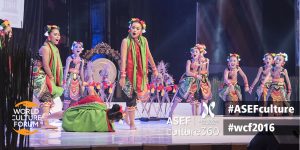 Young people were very visible at WCF 2016, including as artists performing at the Grand Plenary[/caption]
Young people were very visible at WCF 2016, including as artists performing at the Grand Plenary[/caption]The leadership of young people was also acknowledged at WCF through the organisation of the International Youth Forum (9-14 October, Bali) in parallel with the culture forum. The Youth Forum gathered over 150 young people from 35 countries in a cultural village in Bali for an activity-based programme that included challenging conversations on youth activism and deconstructing youth as threat.
Cultural leadership was the subject of discussion at another global gathering this October: the 7th World Summit on Arts & Culture in Malta. The Summit in Malta also reiterated the idea of a ‘culture of leadership’ that goes beyond one’s institution, government or country and instead, enables more actors at the local level with agency to make real change, including through ‘shared leadership’ models. The urgent need for the arts sector to actively engage & build alliances with other civil society actors (including sustainable development and environment) was also strongly underlined in Malta and finds echoes with the conversations in Bali.
This report of the World Culture Forum 2016 was commissioned by the Asia-Europe Foundation (ASEF) and written by Daniel HO Sheng with inputs from Anupama SEKHAR.
Similar content
from - to
10 Oct 2016 - 14 Oct 2016
from - to
24 Nov 2013 - 27 Nov 2013


